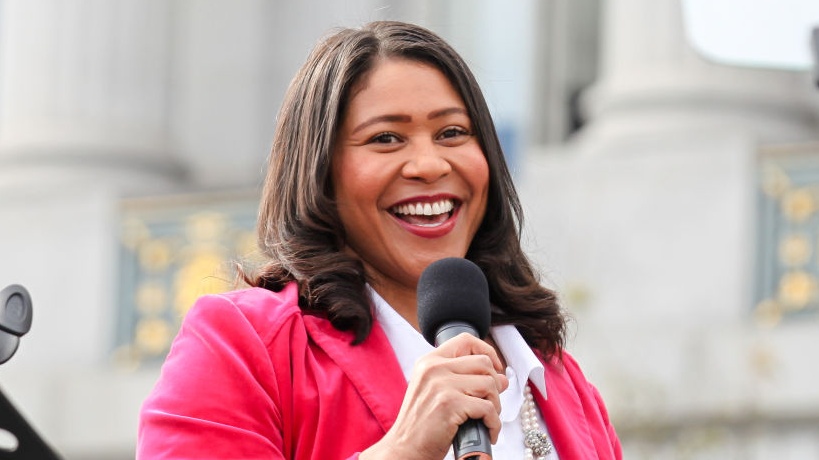In an effort to provide some help to struggling artists, San Francisco Mayor London Breed announced a new universal basic income program that will provide $1,000 each month to 130 artists in the city, according to the mayor's office.
The program is part of a larger package of initiatives designed to address the economic calamity caused by the coronavirus pandemic. Breed helped create the Economic Recovery Task Force which has released a 74-page report of recommendations for how the city can recover.
“San Francisco is only at the beginning of what we know is going to be a long road to recovery. In the months and years ahead, it’s going to take that same collective effort to confront the economic devastation caused by this virus," Breed said. "We need to continue to translate these ideas into action so we can get people back to work and get San Francisco moving forward.”
According to a statement from city officials, nearly $6 million is being put forward for artists, teaching artists, arts organizations and cultural workers. Within that $6 million is the new universal basic income pilot program which will provide $1,000 for six months next year.
Artists of all kinds have been devastated by the spread of COVID-19. The Brookings Institute estimated that the pandemic led to the loss of nearly three million jobs and more than $150 billion in sales of goods and services for creative industries nationwide.
Performing arts industries are facing the brunt of the economic damage, dealing with about 1.4 million job losses and more than $42 billion in lost sales, the report stated. The Brookings Institute also predicted even more job losses as quarantine measures continue and thousands of people continue to contract coronavirus daily.
Their report also found that of all states, California will be the hardest hit, but artists in almost every city and state are facing an unprecedented crisis.
As Blavity previously
reported, there have been a number of fundraisers and auctions held online to try and supplement the money that has been lost, but little can be done to make up for the billions that are made each year through live shows, performances and festivals.
Universal basic income programs have gained steam in recent years and months due to a number of test runs and pilots that were successful.
In addition to a number of non-profit-led programs, countries like Namibia, Brazil, Kenya, Finland, Canada, Germany, Iran and India have implemented a version of a universal basic income. Even in the U.S., certain states like Alaska have tried programs with massive success. Vox reported that the program in Alaska had no effect on the desire to work, decreased poverty levels and led to higher fertility rates.
Other programs, like one in North Carolina, led to lower rates of addiction and crime while fostering huge gains in education and mental health.
The idea gained national prominence over the last year due to former presidential candidate Andrew Yang who made a universal basic income a pillar of his campaign.
In July, Newark Mayor Ras Baraka, Los Angeles Mayor Eric Garcetti, Compton Mayor Aja Brown and others announced that they planned to explore the feasibility of guaranteed income programs as a way to address the economic damage done by the coronavirus pandemic.
“People do not have enough income to take care of basic needs. These conditions were unacceptable before COVID-19 struck, and they are intolerable now. No person should have to deal with these stresses. That is why I remain committed to pushing for a guaranteed income, another step in our work to end poverty in Newark, and to create a more equitable and empowered city,” Baraka said in a statement to Blavity.
